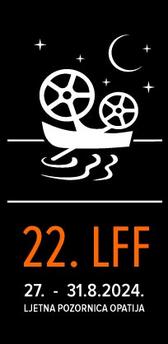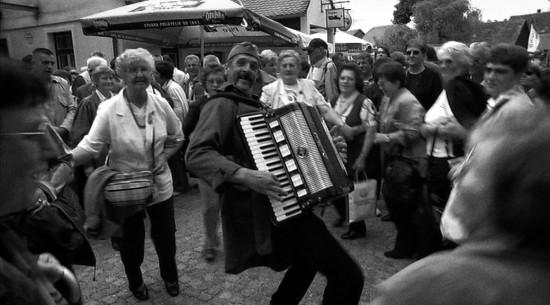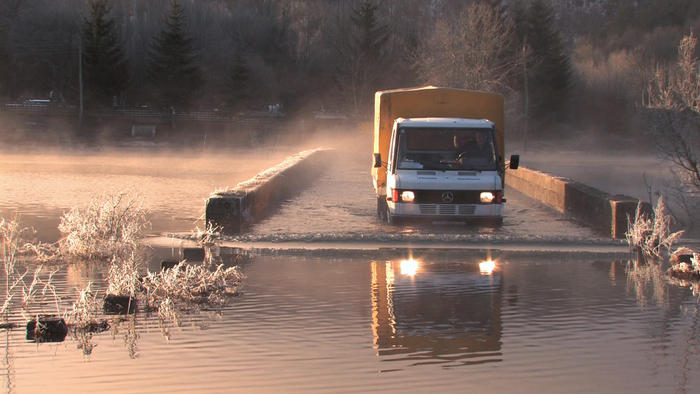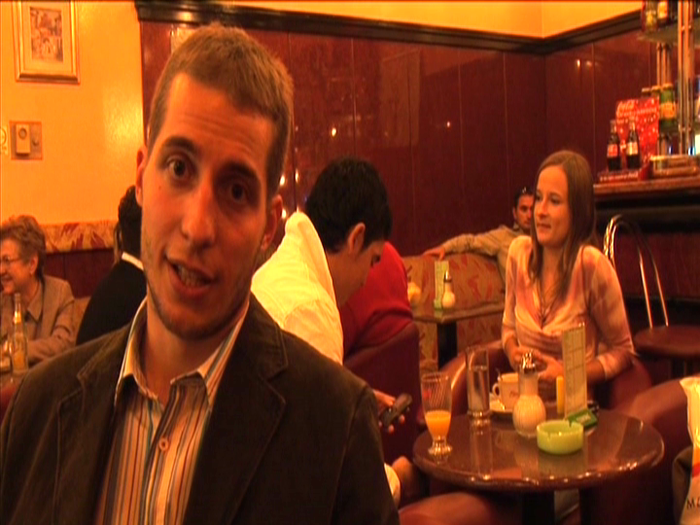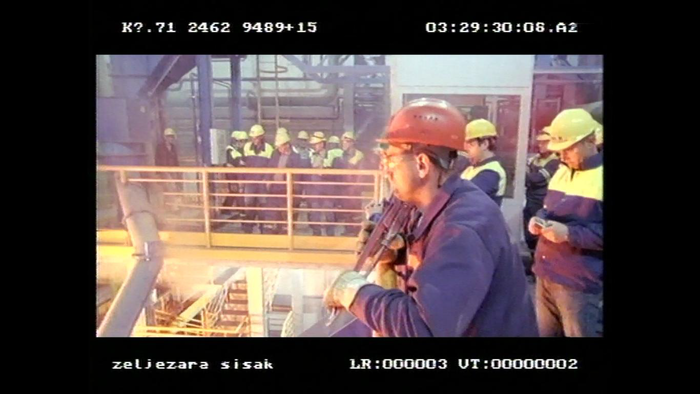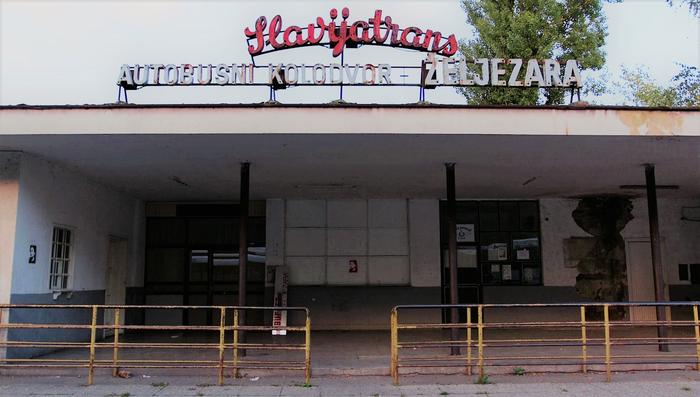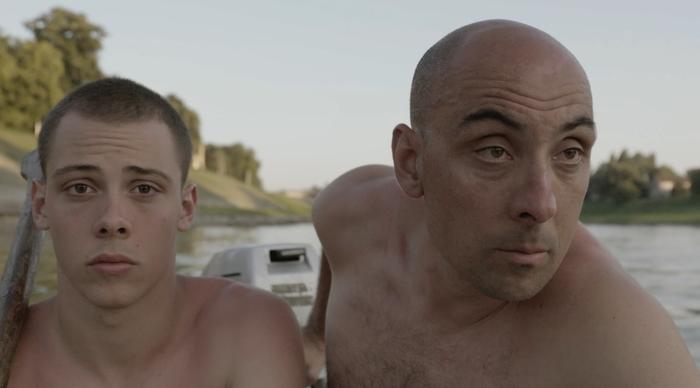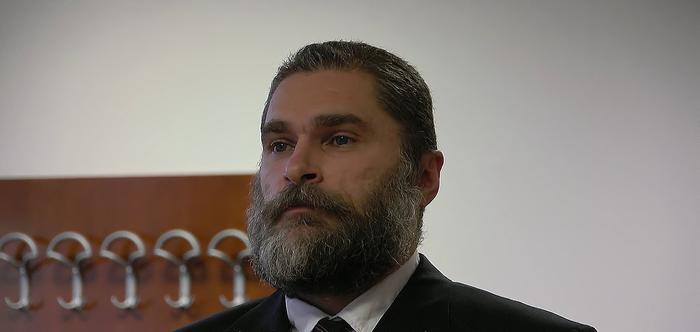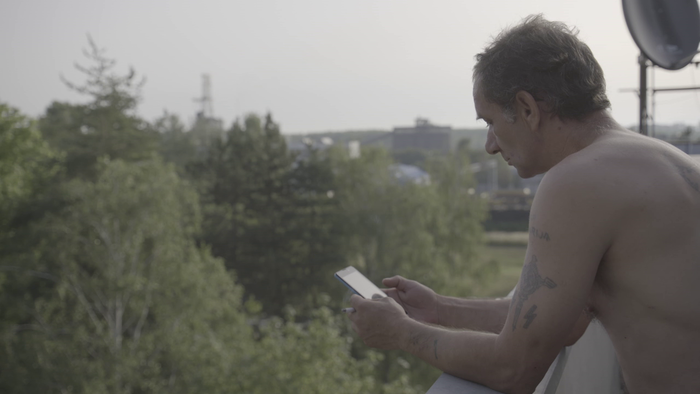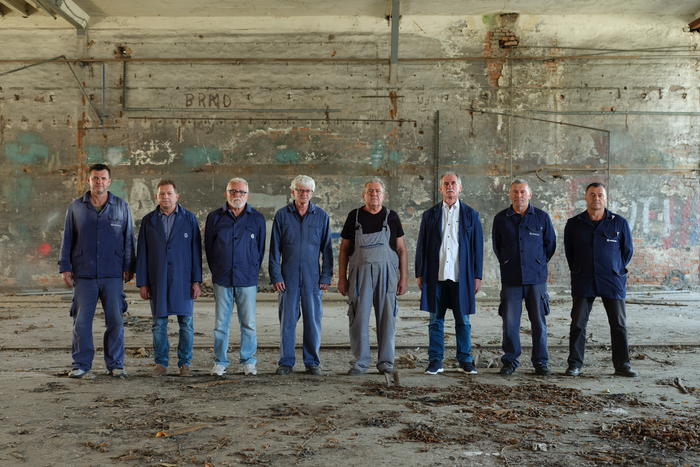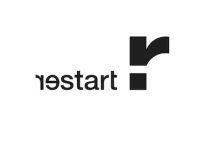Goran
Dević

CV:
was born in Sisak, Croatia, in 1971. He studied law, archaeology and film art at Academy of Dramatic Art, University of Zagreb, Croatia. His filmography includes several documentaries and short films. Teaches documentary film at the Academy of Dramatic Arts. He is the author of award-winning documentary films: On The Water (2018), The Steel Mill Café (2017), 65+ (2016), Two Furnaces for Udarnik Josip Trojko (2012), Don Juan: Excuse Me, Miss (2010), The Flood (2010), Happy Land (2009), Three (2008), I Have Nothing Nice to Say to You (2005), Imported Crows (2004) and others. Film The Blacks (2009), which he codirected, was his feature film debut also woon grand prix Ljubljana Film Festival Slovenia 2009; grand prix Festival autorskog filma Serbia 2009; FIPRESCI award Cottbus Film Festival Germany 2009; special award for directing Cottbus Film Festival Germany 2009; Golden Arena for directing Pula Film Festival Croatia 2009;
Retrospectives of his documentaries were screened at ARSENAL CINEMA, Institute for Film (Berlin) and Crossing Europe Filmfestival (Linz), BELDOX (Belgrade), ZAGREBDOX (Croatia) i MAXII, the National Museum of 21st Century Art (Rome).
Movies:
Imamo li potrebe još uvijek pričati o ratu? (Preuzeto s www.zagrebdox.net)
Film prati pripreme, put i dolazak dvaju autobusa na krajnje odredište. Prvi autobus (od Rijeke do Kumrovca) pun je putnika s ‘pobjedničke strane’ koji idu posjetiti Titovu rodnu kuću i tako obilježiti njegov rođendan. Drugi autobus (od Zadra do Bleiburga) vozi starije ljude koji su se borili na ‘poraženoj strani’, kao i mlađe pripadnike njihove ideologije, do mjesta na kojem su počele njihove...
Međunacionalnu zajednicu koja je za vrijeme zadnjeg rata bila nedaleko crte razdvajanja, zbog velikih kisa, zadesila je poplava. Milana i Slavko volontiraju u pomoći sumještanima koji su ostali bez ikakve komunikacije sa ostatkom svijeta. Film prati kako se zajednica danas odnosi prema prošlom ratu, ali i naglo probuđenom medijskom interesu prema katastrofi koja ih je zadesila.
Osnovna narativna linija ovog filma je praćenje rada jednog čudnog tečaja koji se za strance dubljeg džepa održava u Zagrebu. Cilj tečaja je usavršiti polaznike u jednoj jedinoj vještini – kako zavesti ženu da bi s njome završili u krevetu. Početak tečaja je i početak samog filma – sudionici se predstavljaju i otkrivaju kakve probleme imaju u prilaženju osobama suprotnog spola. Zatim slijede te...
COMPETITION
«Two Furnaces for the Shock Worker Josip Trojko» portrays the remainders of a former steel mill in Sisak and follows the dismantling and cutting of the famous Siemens-Martin furnace, which used to be the very center of the former mill. This furnace helped the workers break the world record in steel production. Overwhelmed by emotions, the workers’ sons slowly destroy the furnace and load its pa...
COMPETITION
, Opatija Summer Stage
The documentary records café conversations of the owners a week before closing the café for good.Erna and Dževad own a bus stop bar by the entrance to once one of the largest ironworks in Eastern Europe. The 'pub talks' filmed by observation technique the last week before the bar's final closure reveal former socialist labourers' new utopia - how to get hold of Germany, the only remaining parad...
17. LFF
, Opatija Summer Stage
Goran Dević's documentary film "On the Water" portrays Sisak, his hometown, a former industrial center situated on three rivers, and its inhabitants. Critics proclaim it one of his finest achievements, and the jury of the Leipzig film festival awarded him special recognition because "it beautifully shows how humanity and survival surpass the traumas and scars of war." The ri...
18. LFF
, Opatija Summer Stage
When Marko attempts to present a radical political programme, his activism clashes with the harsh reality, whereby he is deprived of his freedom and forced into a mental institution. When he is finally declared healthy and released, he avoids politics at all costs. He has been successfully cured.
Opatija Summer Stage
On the tenth anniversary of the introduction of workers’ management, the Sisak Iron Mill, one of the largest industrial plants in former Yugoslavia, built an "ideal" settlement for their workers who had thus far lived in huts around the factory. A town was erected around the plant. Sixty years later the building planned as an architecturally contemporary centre of the neighbourhood fo...
Opatija Summer Stage
Željko is the head of the Gredelj Wagon Factory trade union. His deputy Mladen committed suicide after large public protests and conflicts within the trade union. Željko is torn between the guilt he feels over Mladen's death and the expectation of the workers to lead a strike that should set back the government's EU-ordered plans to send the company into bankruptcy. The story that this film dea...









